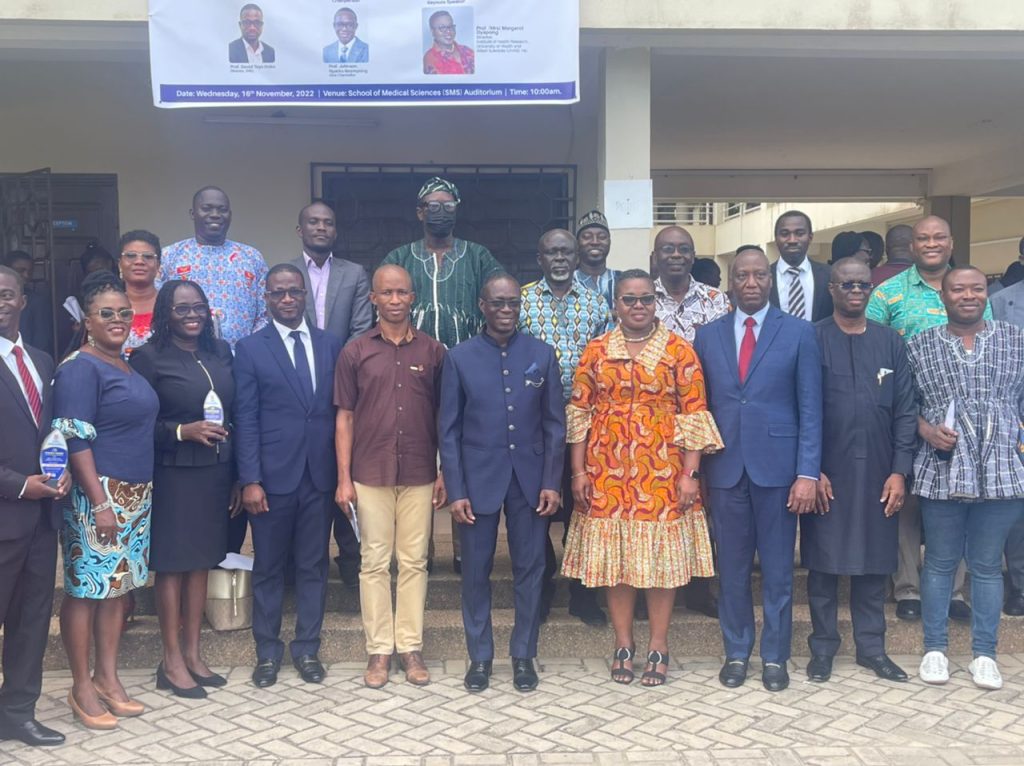By Prince Acquah/ Victoria Agyemang
Cape Coast, Nov 17, GNA – Professor Margaret Gyapong, the Director of the Institute of Health Research (IHR), University of Health and Allied Sciences (UHAS), says there is a need for stakeholders to take ambitious actions to speed up the progress of the Sustainable Development Goals (SDGs).
“2030 is less than ten years away but not much progress has been achieved. We have all the institutions and committees in place and so why can we not implement them? she queried.
Addressing the seventh Research Awards and Grants (RAG) ceremony at the University of Cape Coast (UCC), she pointed out that to advance globally towards 2030, the sense of urgency to evaluate the partnerships both home and abroad must be stepped up to reach the SDGs.
The UCC Best Research Awards instituted by the university seven years ago is targeted at supporting quality research and encouraging research excellence and innovation among the faculty.
The Research Support Grant also provides seed money to conduct short-term small-scale research, which will enable them to test a proof of concept and leverage that for bigger external grant applications.
In all, 39 individual and group researchers from various disciplines received the Research Support Grants, while seven were recognised and honoured for their work.
The ceremony was on the theme: “Research and Innovation for Sustainable Development in a Changing World: The Role of African Universities.”
It provided a platform to share ideas and brainstorm on ways African Universities could contribute to the research and innovation ecosystem for sustainable development.
The UHAS IHR Director said the complexity of the SDGs and the current state of the planet required a paradigm shift in the collective execution of the goals.
“One directional knowledge flow, North-South or top-down approaches are no longer fit for purpose and need to be urgently reviewed if we are to make ourselves relevant,” she stressed.
Professor Gyapong stressed that research conducted by universities must be practical and targeted at solving real problems confronting the country.

She indicated that researchers should collaborate with policymakers including the various ministries to know their strategic plans to help conduct effective and impactful research.
Prof Gyapong emphasised that researchers must be transformative to ensure their research works cause change and are reflected in society.
“We should carry out research that facilitates essential and practical solutions to the current and future challenges as researchers in the country,” she said.
She appealed to the government to support universities to conduct research by way of creating a new funding portfolio for researchers in the country.
Prof. David Teye Doku, Director of Research, Innovation and Consultancy, at UCC, indicated the university’s “Research Agenda” underscored the need for interdisciplinary collaboration within UCC and with its external partners in a collective bid to address the SDGs and other developmental challenges affecting the country.
He was hopeful that the grantees and awardees would continue to conduct relevant research to impact society and contribute to the research profile and visibility of UCC.
Professor Michael Osei Adu from the College of Agriculture and Natural Sciences was crowned the “Best Evolved Researcher” while Dr Selorm Akaba was adjudged the “Best Evolving Researcher”.
The “Best College-Level Researcher Awards” went to Dr Brandford Bervell of the College of Distance Education, Prof. Tulashie Kofi Samuel of the College of Agriculture and Natural Sciences, and Dr Peter Owusu Junior, College of Humanities and Legal Studies.
The rest were Dr Nancy Innocentia Ebu Enyan of the College of Health and Allied Sciences and Dr. Thomas Hormenu of the College of Education Studies.
GNA